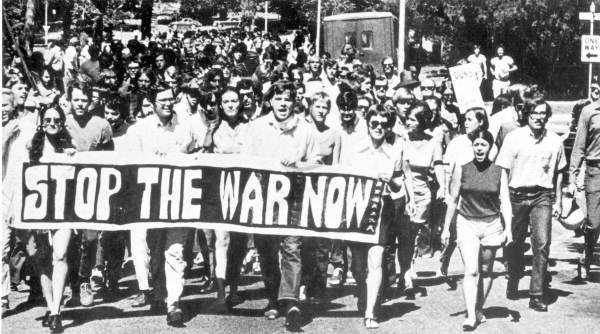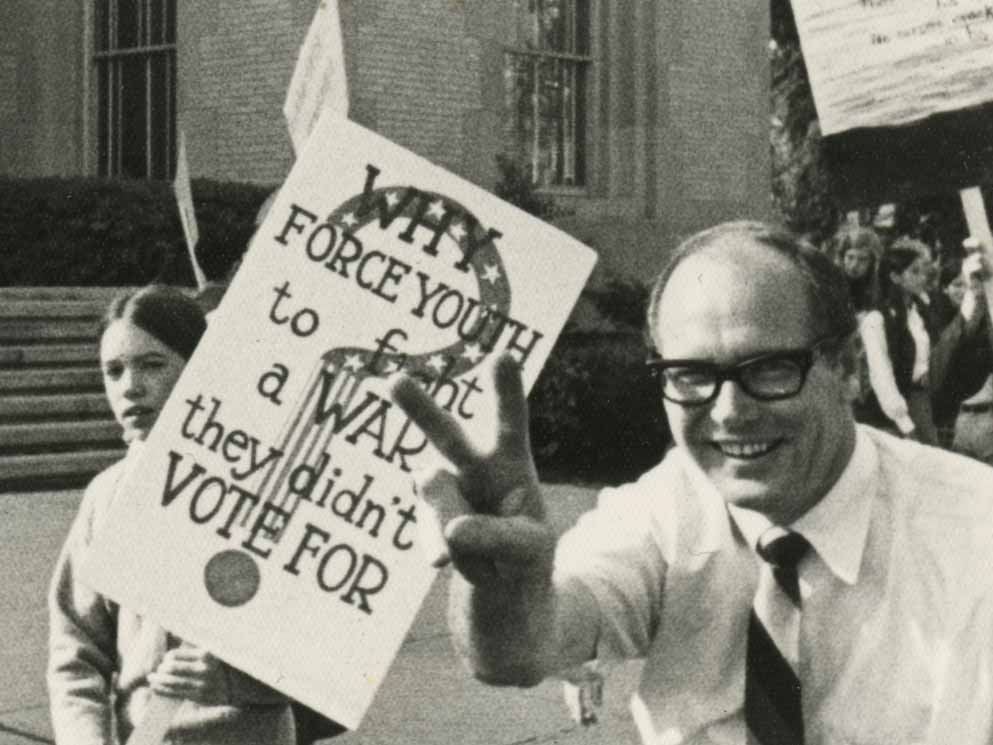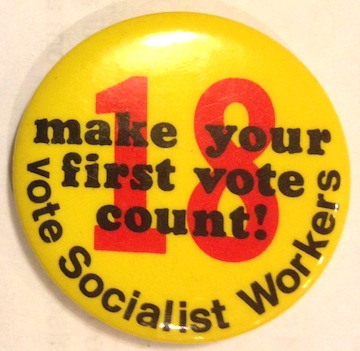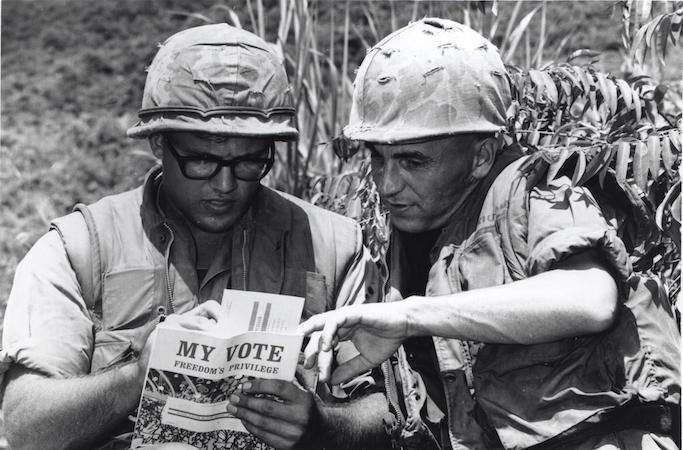Voting and the US Military
![]()
1970
Widespread student protests erupt over the Vietnam War and its draft policies, with emphasis on the discrepancy between draft requirements & voting rights; at age 18 men could be sent to Vietnam, but would not be allowed to vote until age 21.
![]()
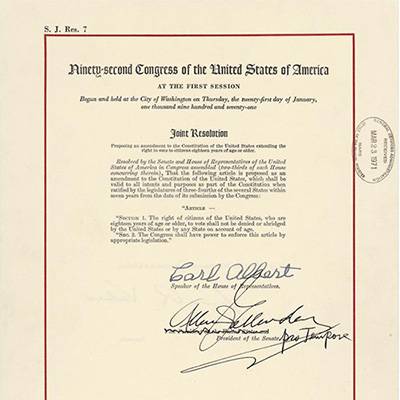
![]()
1971
Adults aged 18 through 21 are granted the right to vote by the 26th Amendment to the United States Constitution.
![]()
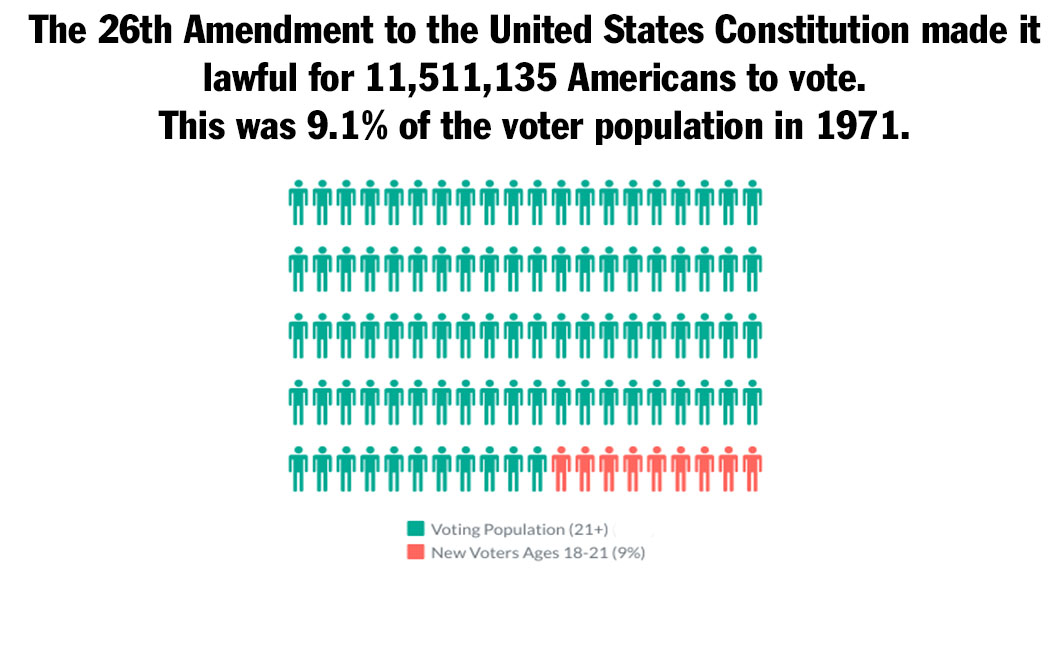
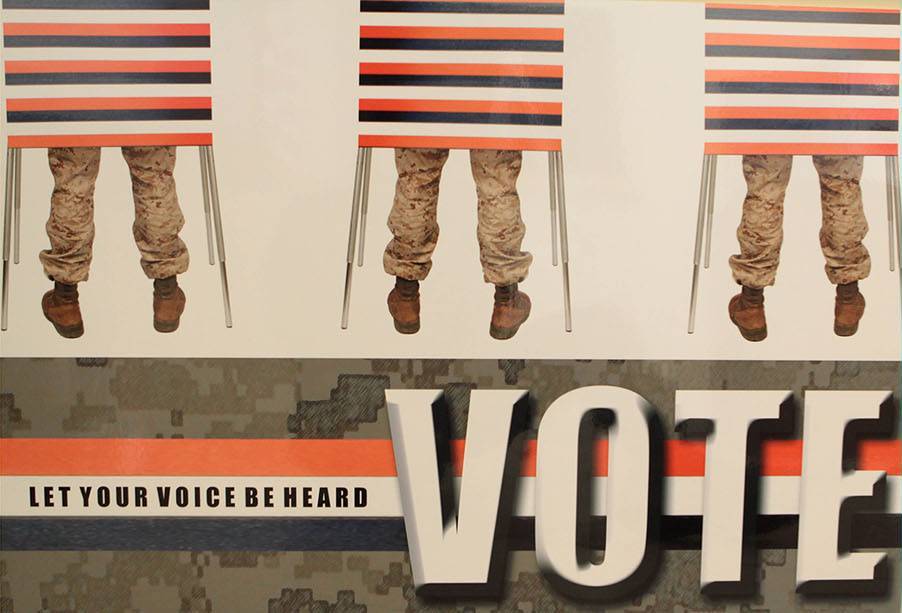
![]()
1986
The Uniformed and Overseas Citizens Absentee Voting Act is passed, allowing US military and their families to vote through absentee ballot while abroad.
![]()
1986 Washington, D.C. - Voting rights for citizens who may not be residing in the United States, including active service members of the military, are federally protected through The Uniformed and Overseas Citizens Absentee Voting Act (UOCAVA). While many overseas military personnel were able to vote prior to this legislation, UOCAVA establishes federal protections and creates The Federal Voter Assistance Program to facilitate absentee voting.
"UOCAVA requires that the states and territories allow certain groups of citizens to register and vote absentee in elections for Federal offices. Those groups include: members of the United States Uniformed Services and merchant marine; their family members; and United States citizens residing outside the United States.”
- United States Department of Justice.
The Uniformed and Overseas Citizens Absentee Voting Act made it lawful for 995,546 Americans to vote from abroad.
This was 0.4% of the population in 1986.
This percentage of the population is too small to be illustrated via an Infographic.
For more information on how to cast your absentee vote, visit the Federal Voting Assistance Program's website at https://www.fvap.gov/
Next: Explore Voting in Pop Culture
When making a contribution please be sure to select “library archives“ for your gift designation. We thank you so much for your support!


